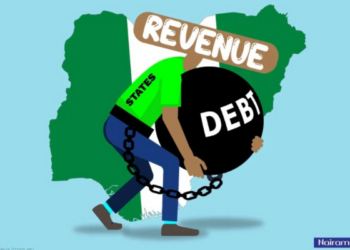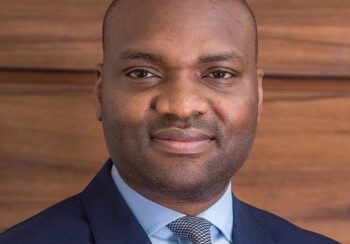Within the last decade, crises in emerging markets have not only underscored the importance of maintaining adequate external reserves, it has also underscored the need to identify its sustainability. In attempts to achieve macroeconomic stabilisation, Nigeria, like other developing economies, have accumulated substantial foreign currency reserves in recent years.
According to the International Monetary Fund (IMF), reserves management is a process that ensures that adequate official public sector foreign assets are readily available to and controlled by the authorities for meeting a defined range of objectives for a country or union.
It has been argued that the best use of surplus reserves is effective management to maximise profits rather than for liquidity sake. Hence, Sovereign Wealth Funds (SWFs) have a long history of using foreign exchange reserves for profit-seeking investment. This is why SWFs have emerged as a popular institutional blueprint for more active external reserves management.
An overview of SWFs: First established in Kuwait, now a global phenomenon
Essentially, Sovereign Wealth Funds, which was first established by Kuwait in 1953, now serves to protect oil economies from boom and bust. The world’s current largest SWF boasts of assets under management of around $1trn. In 2017, Norway’s sovereign wealth fund exceeded $1 trillion.
Reports have shown that emerging market economies with high levels of international reserves were better prepared to withstand the ripple effects of the 2008/2009 global financial crisis.
Past and current trends
Before the dominance and adoption of the U.S dollar as a vehicle currency, gold (under the gold standard) was the major component of external reserves as the means of settling international debts.
Now economies of the world have adopted the Guidotti rule, which stipulates that developing countries should hold enough reserves to cover all foreign debts that is short-term or maturing within one year.
Currency Accumulations No Some controversies
While currency accumulation is not a new phenomenon, recent activities have also stirred debate. SWFs, unlike foreign reserves, typically seek to diversify foreign exchange assets and earn a higher return by investing in a broader range of asset classes.
However, concerns have been raised about how institutions in the “investing” and “receiving” countries may need to adapt. The issues range from transparent investment approach, information on the type and amounts of assets held, governance structured and how decisions are made on the fund have been mooted as major concerns.
Similarly, critics have expressed worry over currency accumulations managed by the State, citing tendencies of vulnerability to politically driven investment decisions, cronyism, and even corruption.
Nigeria’s Sovereign Wealth Fund: How Reserves maybe affected?
In Nigeria, there are two Sovereign Wealth Funds: the Excess Crude Account (ECA) and the Nigeria Sovereign Investment Authority (NSIA). Note that these two are funded by the savings earned when oil prices are at peak.
Hence, as a larger chunk of revenue is appropriated for ECA and NSIA rise, external reserves are likely to fall. For instance, in 2018, the National Economic Council (NEC) reportedly approved fresh injection of $650m from the reserves into SWF, and that improved the SWF to $2.15 bn.
Nigeria has a Sovereign Wealth Fund established which by the Nigeria Sovereign Investment Authority (NSIA) Act 2011. Specifically, the SWF was reportedly established to address the controversies surrounding the Excess Crude Account (ECA).
The fund is usually expected to generate revenue to meet budget shortfalls in the future, provide dedicated funding for development of infrastructure and keep some savings for future generations.
Is the International Monetary Fund’s (IMF) ranking truly flawed?
Following the IMF’s latest ranking of Nigeria as the world’s second-worst country in the use of sovereign wealth funds, Nigerians have become critical of the excesses of the government in the mismanagement of the country’s commonwealth.
BREAKING: IMF ranks Nigeria as the second worst country in the world in the use of sovereign wealth funds.
— Nairametrics (@Nairametrics) April 10, 2019
However, the Managing Director, Nigerian Sovereign Investments Authority (NSIA), Mr. Uche Orji, faulted the IMF’s ranking, describing it as a flippant piece of work. According to him, the poor ranking is due to Nigeria’s policy to use part of its SWFs’ funds in domestic investment.
IMF’s Bluff: Should it be celebrated?
Just days after the IMF’s controversial ranking, the IMF’s Senior Resident Representative and Mission Chief for Nigeria, Amine Mati, reportedly tried to provide more explanation on the controversial report.
“In view of recent local media reports, I would like to clarify that the reference to the Sovereign Wealth Funds (SWF) included in Figure 2.16 of the IMF’s Fiscal Monitor showing a low ranking for Nigeria does not refer to the Nigerian Sovereign Investment Authority.”
$2.53 Sovereign Wealth Fund: Connecting some dots
Nigeria has reportedly grown SWFs up to $2.53 billion in the last 10 years. Also, Nigeria’s external reserves have continued its bullish run, edging towards $45 billion thresholds. This was last recorded six months ago.
The Naira has has been relatively stable because of CBN’s injections. However, this is only a short term fix which requires appropriate policy restructuring.
“Foreign accumulation is only meant to be a support, not a policy in itself.”
Also, there have been several reported cases of mismanagement of the excess crude accounts. Chief among all is the reported $1.68 billion the Federal Government removed from the ECA in 2018, with claims that the fund was used to offset the last tranche of the Paris Club obligations to states.
There have also been reported cases of accruals being shared every month during the Federation Accounts Allocation Committee (FAAC) across the three tiers of governments in Nigeria.
Way Forward: IMF can’t be ignored
It was recently reported that Nigeria’s external debt stood at $25.2 billion. With external reserves at $44.7 billion, it suggests Nigeria’s external debt is 56% of foreign reserves.
Also, Nigeria’s Debt-GDP ratio, which reportedly stood at 21.1 percent in 2018, appears good. Yet, there has been concern that the economy is treading a risky path.
As recalcitrant as IMF’s fiscal policy stance may appear, corruption and policy somersaults as noted by the Bretton woods organisation, are major banes that must be addressed if the Nigerian economy must fulfil its growth potentials.



















